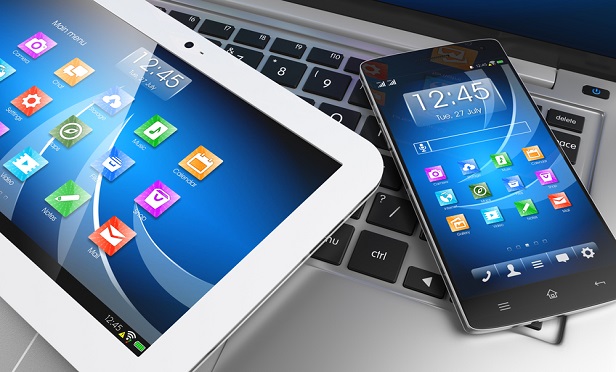
The holiday season is upon us when, in the hustle and bustle, wecan sometimes overlook securing one of the most importantcommunication and productivity tools in our modern lives: mobiledevices.
|Related: Identity theft takes the sparkle off of the holidayshopping season says new study
|Mobile phones, laptops and tablets are ubiquitous. Whether BYOD(bring your own device) or company-provided, we take for grantedwhen this technology works day in and day out.
|We are lost when they fail or get damaged, stolen orcompromised. Here are some tips to help you minimizetechnological difficulties during this busy time of year.
|The U.S. Department of HomelandSecurity defines threats and risks in five separate layers.We'll cover each with one or more methods to secure yourdevice.
|1. Mobile device technology stack: The firstthing employees or IT staff can do to ensure a solid foundation ofup-to-date features and security fixes is to use the manufacturer'slatest software update for the device(s) being used. Whether youutilize iOS, Android, Windows or a combination of each, regularlychecking for device updates will ensure that you are takingadvantage of an operating system that has closed any recently foundholes attackers can compromise.
|Some new OS updates may introduce compatibility issues, so besure to check that all your applications will work prior toupdating. Keeping your applications updated will also help secureyour devices.
|Make sure your device is regularly backed up. This will allowyou to "roll back" to the last known good configuration if anupdate causes a problem. Backups should never be overlooked!
|2. Mobile networks: All devices connected tothe internet to share data need to be part of a network. These daysyou can find a way to connect almost anywhere you are. From thelocal coffee shop to a hotel you are staying at, all haveconvenient methods to communicate with your colleagues and familiesduring the holidays.
|An important thing to remember is to ensure that the Wi-Finetwork you are connecting to is legitimate and secure. Does itrequire a password that will ensure encryption (preferably WPA2) oris it open to anyone with no security at all? The former should bea requirement for anyone traveling away from the office.
|Related: 3 best practices for a layered cybersecurityprogram
|Be mindful of any access points that are not sanctioned by theestablishment you are in and resist connecting to them. Always usea VPN (virtual private network) regardless of where you connect asthat will add another layer of encryption and security to yourconnection. Connecting to an open access point risks allowinganyone monitoring or "sniffing" that network to procure yourpasswords and wreak havoc. Finally, using two-factor authenticationcan also create another important layer of security when connectingto corporate networks over these public wireless access points.
|3. Device physical systems: An obvious way foranyone to gain access to your device is via physical manipulation.If you do not protect your device with a strong password thatincludes a combination of uppercase, lowercase, numbers and/orspecial characters, you make it easier for someone to "brute force"a way into your device by guessing your password. If you don't havea password, anyone can pick up your phone or tablet and view thedata on it or, even worse, send data out to others in yourname.
|One way to take security one step further is to utilize thebiometric password features of your device. This will includeoptions depending on your hardware such as facial recognition orfingerprint readers. These technologies are very hard to bypass,and you carry your password with you wherever you go.
|The next step is to set up your device to automatically lock thescreen after sitting idle for a minute. This will require you oranyone who wants to use the device to enter the password, thwartingunauthorized tampering or snooping.
|4. Mobile applications: There are applicationsyou can download for your laptop, tablet or phone that can open thedoor for malicious use or privacy intrusion. Most "app stores" areclosely controlled, but sometimes there are applications that getpast the vetting process. Laptops are more at risk due to theability to install any software if you have the privileges to do soand not being limited to a specific app store.
|Related: Emerging risks and how consumers and businesses aremitigating them
|Having a proper first line of defense by installing a modernanti-malware and anti-virus product from a reputable softwarepublisher is paramount to keeping the bad guys out. This will alsohelp secure your machine from software downloads and installs thatare infected with digital bugs or viruses. Sometimes theseinfections can occur by casually clicking on a pop-up ad byaccident. Updating your anti-malware and anti-virus product asneeded will keep it smarter and able to detect the latestthreats.
|5. Mobile enterprise: Work with your ITdepartment or IT vendor prior to taking your vacation or holiday toensure that your device(s) are fully protected, updated and testedto connect back to your office. You don't want to be thousands ofmiles away and unable to work or communicate with your peers orclients after you find out your password has expired or there issome other problem blocking your connection. Take the time to speakto your technologists and have them check your software andhardware for updates, a cleanup and any other items you may needfor travel such as power converters for plugging your devices in tocharge in another country.
|Time spent on these activities will save you potentially hoursof frustration while out of the office and trying to troubleshootproblems over the phone. Or worse: without a connection to theinternet, your IT staff or vendor won't be able to remotely connectto help troubleshoot your problems.
|Related: How to protect your child from identiytheft
|Tim Sheehan is the director of professional services atInnovative Computing Systems. He can be reached at [email protected].
Want to continue reading?
Become a Free PropertyCasualty360 Digital Reader
Your access to unlimited PropertyCasualty360 content isn’t changing.
Once you are an ALM digital member, you’ll receive:
- All PropertyCasualty360.com news coverage, best practices, and in-depth analysis.
- Educational webcasts, resources from industry leaders, and informative newsletters.
- Other award-winning websites including BenefitsPRO.com and ThinkAdvisor.com.
Already have an account? Sign In


